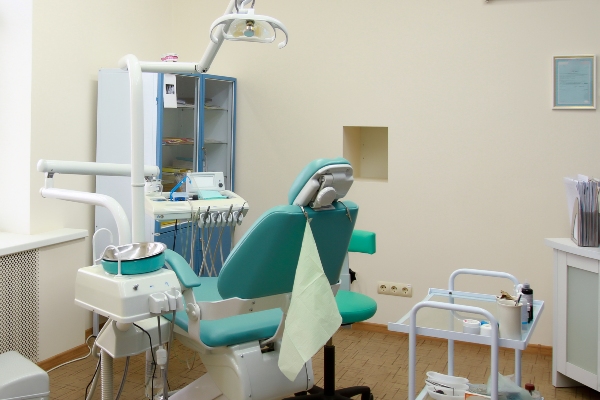 Visiting a pediatric dentistry office with your child ensures his or her future relationship with oral hygiene and dentists, in general. Whenever your child suffers from oral injuries, consider making an appointment with your pediatric dentist to uncover any underlying problems. For instance, injuries to the tongue and teeth could indicate a deeper jaw or tooth structure problem.
Visiting a pediatric dentistry office with your child ensures his or her future relationship with oral hygiene and dentists, in general. Whenever your child suffers from oral injuries, consider making an appointment with your pediatric dentist to uncover any underlying problems. For instance, injuries to the tongue and teeth could indicate a deeper jaw or tooth structure problem.
Why is your child biting his or her tongue or lip?
There are various reasons a child may bite his or her lip. Everyone bites their tongue sometimes, but if it becomes a consistent problem, there is usually an underlying condition to blame. If your child often bites their lip, it could indicate an issue with the jaw or teeth.
Malocclusion
Malocclusion refers to the teeth not aligning properly in the mouth. When your child's teeth do not line up correctly, it becomes difficult to chew. He or she may have to chew harder or find it difficult to pronounce words correctly. There are different types of malocclusion, with there being three standard categories.
Class III malocclusion
If your child's lower teeth stick out more than the upper teeth, resulting in an underbite, your child may have Class III malocclusion. Class III can also include a crossbite with overlapping lower and upper teeth.
Within Class III, there are types of malocclusion. In Type I, kids have good alignment but an abnormal arch. Type II has good upper front teeth alignment, but the lower teeth tilt toward the tongue. In Type III, the upper teeth lean in the direction of the tongue, and the lower teeth are aligned as they should be.
Class II malocclusion
In pediatric dentistry, a Class II malocclusion is where the upper teeth stick out past the lower teeth, causing an overbite. In Type I, your child's teeth angle toward the lips, often leading to lip biting when eating. In Type II, on the other hand, the central incisors lean toward the tongue, causing damage to the tongue.
Class I malocclusion
Class I involves an overlap. This is where the upper teeth stick over the lower teeth. In Class I, the bite is normal, aside from the overlap. Often, teeth overlap because of extended bottle use or thumb-sucking in childhood. For the three types of Class I malocclusion, children can have teeth that angle toward the tongue in type I. Type II involves narrow arches with upper teeth sticking out but lower teeth angling toward the tongue. In Type III, the front teeth angle in the direction of the tongue.
Jaw misalignment
There are various reasons that a child's jaw may have improper alignment. This can result from developmental issues, teeth that are too big for the mouth, early loss of baby teeth, or different size upper and lower jaws. Through an examination, professionals can indicate jaw alignment issues that may lead to tongue and lip biting.
Conclusion
It is normal for a child or adult to bite his or her tongue or lips accidentally. However, it could point to an underlying condition when it becomes a habit or if your child risks damaging his or her tongue and lips because of biting. Children who consistently bite their tongue or lip may require pediatric dentistry treatment.
Request an appointment or call Precision Orthodontics & Pediatric Dentistry at 703-391-8800 for an appointment in our Reston office.
Recent Posts
Dental care for children often requires unique approaches tailored to their developing dentition and growing independence, and one type of care that they can receive is pediatric dental X-rays. However, parents often wonder whether exposing young children to X-rays is more harmful than helpful, so it is common to have questions about this type of…
A kid friendly dentist has many important jobs in your child’s oral wellness. Aside from cleaning your child’s teeth at semiannual appointments, the dentist will check on jaw and bite issues. As your son or daughter gets older, the dentist will also check on how the permanent teeth are coming in. There are ways the…
Cavity treatment for kids can help children maintain their long-term oral health. Tooth decay in children can lead to discomfort, infection, and long-term dental complications if left untreated. Fortunately, early detection and appropriate pediatric dental care can prevent complications and support healthy oral development as children grow up.Cavities develop when bacteria in the mouth feed…


